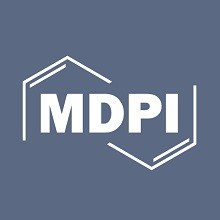
مقاله انگلیسی اینترنت اشیا و سایر راه حل های الکترونیکی در مدیریت زنجیره تامین و تهدیدات در بخش انرژی
Abstract
Open Access and Permissions
Share and Cite
Article Metrics
Author Biographies
Order Article Reprints
Abstract
Energy firms are the beneficiaries and initiators of innovation, and energy investments are a crucial area of business activity that is specially protected in any country. This is no wonder, as energy security is the basis for the functioning of states and economies. The Internet of Things and Big Data create both new challenges and new threats. This study aimed to identify the potential threats and determine preventive measures, as well as to establish the agile principles related to energy firms’ logistics. The method of the narrative summary in combination with the literature searching method was used. Two conclusions emerged: first, research serves to develop the discipline of management science; second, the identification of risks associated with innovation serves practitioners. In addition, the study defined further research directions.
Introduction
Innovation provides a competitive advantage in any market by improving or replacing something. It includes but is not limited to process improvement and organisational innovation, product development, business model development and digital transformation, which facilitate the creation of new solutions. “Innovation is the difference between leaders and followers”, said Steve Jobs, Apple’s famous CEO, [1]. In the era of globalisation, the winner is the one who is the most innovative, not only in terms of production but also management. Nobody is questioning the importance of innovation in today’s economy, and there is broad consensus on that, e.g., [2–6]. The roots of the word “innovation” should be sought in the Latin word “innovare”, and in modern times, the concept of innovation was introduced into scientific discourse by Schumpeter at the beginning of the 20th century [7]. According to ISO 56,000:2020, innovation is a new or changed entity, realising or redistributing value [8]. The analysis of the definition of innovation allows for the identification of several of its elements. Innovation is associated with a completely new solution or product, or with improvement to an existing product, as well as improvements to the processes, methods, techniques, services, technologies and business models available to different types of consumers
